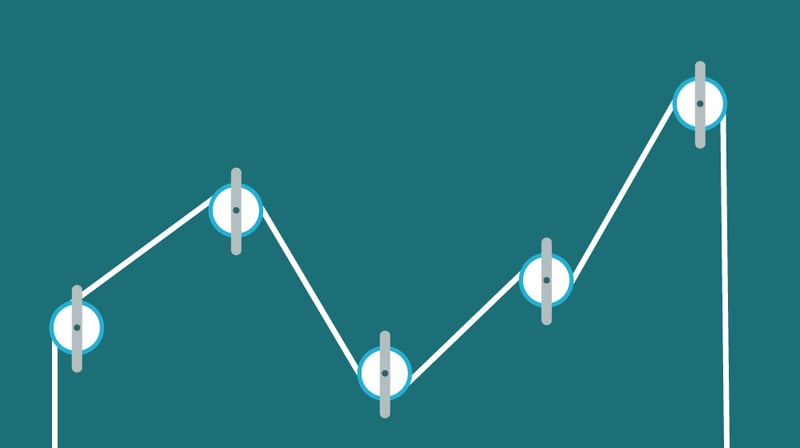We need to involve students more in assessment.
Despite assessment usually being shorthand for assessment of student learning, faculty, staff, and assessment pros are all guilty of not engaging students as much as we should.
And it’s not like including students is merely a nice thing to do. We owe it to students to make them partners and valued stakeholders in the process. Because that’s what they are! Assessment data is both for and about students, making the processes and the results relevant and pertinent to students as an audience.
There are many possible ways to involve students in assessment. It can be helpful to first think through the assessment cycle and common practices in order to identify realistic opportunities and activities for which to include students as collaborators. Although institutional models for assessment may differ, consider the following student inclusion efforts grouped by four categories: assessment planning, data collection, reporting, and taking action.
Planning
1. Articulating learning outcomes
When it comes to developing learning outcomes, students should be key collaborators in order to ensure accuracy and appropriateness of content.
Talk to students about services, programs, and offices to explore what the intended outcomes or learning areas might look like. Invite students to collaborate in choosing the language for the outcome statement, plus be sure to share the draft outcome statement with students to review for clarity and relevance.
2. Prioritizing projects
As you consider assessment needs for the year, invite students to review, and possibly shift, your perspective.
Give them a voice in thinking about your area’s priorities in relation to institutional strategy and culture. This is a great opportunity to invite feedback from student org leaders, student government members, and student employees. You can share past assessment plans and results with students to help inform their perspectives.
Data Collection
3. Selecting and creating instruments
As much as you may assume that students are experiencing survey fatigue, talk to them to get their actual thoughts on survey activity. You may be surprised; they may think certain surveys are ok or expected, while others seem irrelevant or too much. And if you opt for an observation rubric that staff will fill out, students can offer their perspective as to how to introduce or contextualize the purpose of rubrics to students being observed.
Once instruments are selected, students should be included when you pilot or share a draft for review. They can offer feedback on language, instructions, and even give some test data to ensure that you capture the intended data.
4. Supporting administration
Just as students can (and often will) tell you if they’re receiving too many surveys, they can also inform your data collection strategy.
Should surveys be sent to students’ school emails or their personal ones? Would students participate in a survey posted on the school’s website? These are the sorts of questions students themselves can help you answer. Moreover, the students you engage as stakeholders can help solicit participation and be part of the data collection process!
5. Entering data
While this may not be appropriate for all assessment efforts, you could leverage students to enter data in many scenarios. This could include compiling survey results, entering paper and pencil results into a digital format, or pulling data from multiple sources into a single spreadsheet. Just be sure to exercise appropriate judgment whenever data has personal identifiable information or is sensitive in nature.
Reporting
6. Analyzing data
In addition to leveraging students for data entry, you could use individuals with relevant skillsets for data analysis efforts. Students could aggregate results and draw descriptive statistics, as well as disaggregate data to report on results among identity or topic-related responses from their peers. Be sure to offer guidance and context for analysis work, especially in relation to assessment plans and targets for outcomes and measures.
7. Making meaning of results
Because assessment data is about measuring student learning and intended for improving student learning, let’s give students a seat at the table to discuss and interpret results! Their perspectives can be incredibly valuable in giving meaning to student knowledge, skills, and behavior. Students may also be insightful in raising new questions as a result of reviewing the results, which could inform follow-up or future assessment activities
Taking Action
8. Informing actions
Given that students are relevant stakeholders in making meaning of student data, they can also be useful for making data-informed decisions. As staff consider the impacts on students or possible changes for improvement, students can offer an important perspective to consider implications and reception of said changes.
9. Executing for effectiveness
As actions are determined, students can be the responsible party for carrying out their respective tasks. What better population is there to share results or discuss improvements being made to students than their peers? Students also may have easier access and more credibility as spokespeople when sharing assessment results with various student populations.
The above strategies should apply to most areas conducting assessment. Some departments may have easier access or more willing participation for student volunteers, but I imagine that students will be willing collaborators when any office properly appeals to purpose and emphasizes the value of student voices.
We are far past due in making students collaborative partners, not just subjects of study. Good luck with your outreach and invitations to students for future assessment activities!
Have questions or additional suggestions for involving students in assessment? Connect with us on Twitter @themoderncampus and @JoeBooksLevy.





